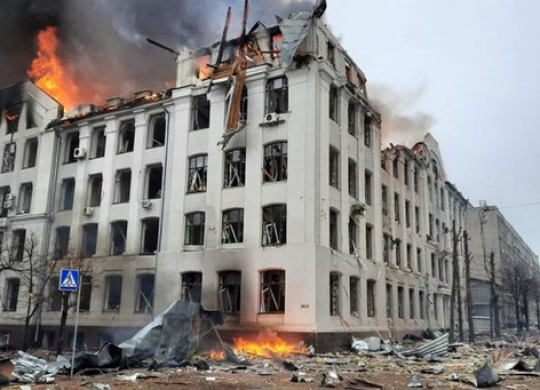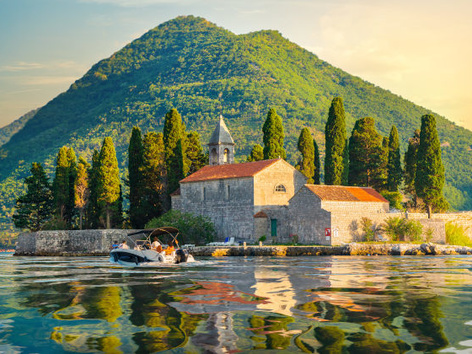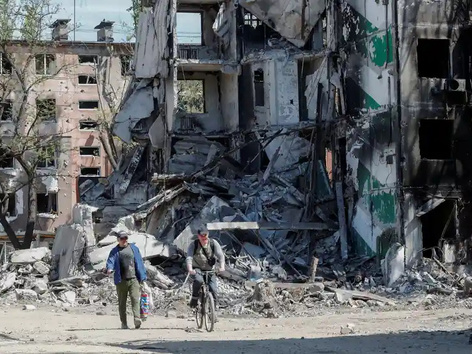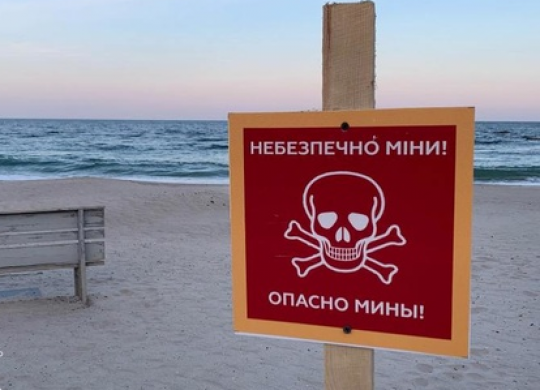
A full-scale war with Russia has been going on in Ukraine for four months. Since February 24, Kharkiv, forty kilometers away from the Russian border, has been under regular shelling by Russian troops. But despite the threat, life here continues. Although the mayor still notes that he cannot guarantee the safety of Kharkiv residents.
"I believe that in this situation, everyone should decide for themselves - to stay or to leave. Of course, if a person returns to Kharkiv, we will lend a hand and help everyone we can. But no one has eliminated the risk factor. Entrepreneurs must also decide whether to open restaurants, cafes, beauty salons, production or not. But we cannot guarantee that there will be no sudden shelling,” Ihor Terekhov said in an interview.
We talked to a Kharkiv resident and asked him about life there. Maxim returned to the city a few weeks ago. Before the start of the full-scale war, he lived in Saltivka, which is currently under severe shelling, but now he has returned to another area.
"There is such a phenomenon in Kharkiv as “internal refugees” who moved from Kharkiv to Kharkiv, ie to other districts - from Northern Saltivka, Oleksiyivka to New Houses, Kholodna Hora and other districts. And the difference is big. My life in the area is very close to peaceful - people walking, most of the shops are open… And in Saltivka everything is much worse, here I can only hear shelling from there, but there something can land on you, "- says Maxim.
Some areas of the city, says Maxim, have almost not been destroyed or shelled, people are gradually returning there and trying to make a living, and some of them did not leave at all. According to Maxim, currently, the city has almost half as many people as before February 24. The areas closest to the Russian border and the city center were the most damaged, with historic buildings destroyed.
The most famous Gorky city park, where Russian missiles have repeatedly landed, was also destroyed. Before the war, many travel-savvy Ukrainians said that their beloved Gorky Park was much better than Disneyland in Paris. Now the amusement rides and infrastructure facilities are all bombed out. Maxim says, in general, there are very few people on the central streets of the city now.
“Before, the center of Kharkiv was very lively, someone was constantly playing musical instruments, there were concerts, fountains, skateboarders… Everyone went to Gorky Park - there were an incredible number of people. And now when you are walking - only a few people can be seen, " the man shared.
The city has working supermarkets, post offices, pharmacies, catering establishments, and shops with non-food products. Mostly everything in the city is open until six in the evening. The largest market, Barabashovo, which was also hit by shelling, is partially operational, entrepreneurs are selling survived goods.
From June 1 Kharkiv authorities renewed utility payment. The City Council explained that all utility bills in the period from February 24 to June 1 will be written off. A recalculation will be made and in July Kharkiv residents will receive bills with a charge for June. But those Kharkiv residents who paid for services during this period, the amounts paid will be counted as payment from June 1. But if consumers had arrears before February 24, it will also be included in the payment.
As far as possible, public transport has resumed operations. Land transport does not run to areas where there is frequent shelling, and two metro stations are still inhabited, so trains do not stop there. Travel in the subway and public transport is currently free, but minibusses have doubled in price.
Despite the situation in the city, city workers are restoring damaged gas pipelines and water mains, taking care of the city. “In all districts of the city, we constantly mow the grass, sweep and plant flower beds. Pits on the roads are also patched up periodically… The consequences of the shelling are removed very quickly, ” says Maxim.
But it is not yet possible to talk about any large-scale work on the reconstruction of destroyed buildings, neither in the center nor in the uptown. Due to constant shelling and rocket attacks, it does not make sense now. And the closer to the border with Russia - the more complicated the situation.
It is also difficult to find a job in Kharkiv. As Maxim says, many citizens are unemployed, but it is possible to survive at the expense of humanitarian aid, which is regularly brought to the city.
“My mother is a pharmacist, she is lucky, she has a job. But elsewhere it is difficult to find even the most primitive physical work. New business is not opening in the city either, ” the Kharkiv resident shared.
In general, says Maxim, people have already adapted to the conditions of war and learned to survive.
"People are really happy because the city is not under occupation, so they are ready to endure everything. The frontier is very close to here. People understand that the war will not end soon and Kharkiv will be shelled for more than a day, maybe more than a month, ” the man said.
The President's Office warns again about the threat to the city - Russia is accumulating a lot of new equipment at the border. They say that the occupiers are unlikely to be able to take over the city, but Kharkiv again risks becoming a front-line city.
"People are really happy because the city is not under occupation, so they are ready to endure everything. Here is a very close front. People understand that the war will not end soon and Kharkiv will be shelled for more than one day, maybe more than one month, ”the man said.
The President's Office warns again about the threat to the city - Russia is accumulating a lot of new equipment at the border. They say that the occupiers are unlikely to be able to take over Kharkiv, but it again risks becoming a front-line city.
Recommended articles
2 min
Popular




